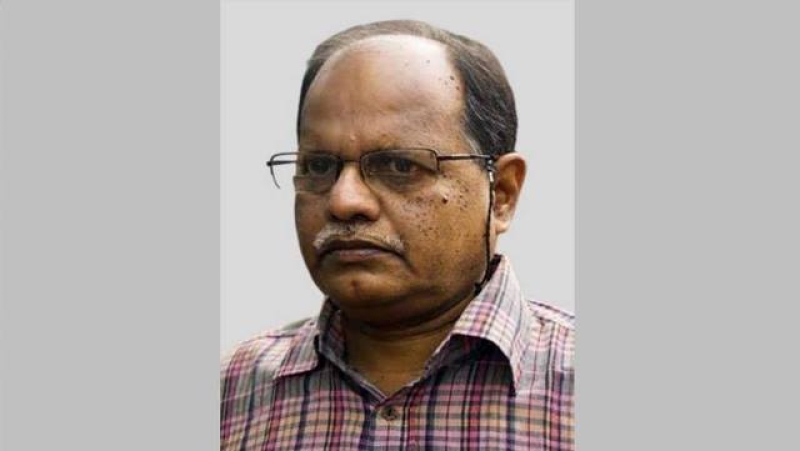- Yunus Urges Voters to Shape a ‘New Bangladesh’ |
- Bangladesh Polls: Campaign Ends as Voters Weigh Pledges |
- Bangladesh Heads to First Gen Z-Driven Competitive Poll |
- EC Lifts Mobile Phone Ban, Bars Photos Inside Booths |
- Youth participation vital to BD’s democratic future: C’wealth Group |
Journo Bibhutiranjan’s death, a wakeup call to the society

Journalikst Bibhutiranjan Sarkar
The body of veteran journalist Bibhutiranjan Sarkar, 71, was recovered from the Meghna River on August 22, a day after he went missing from his Siddheshwari residence. He had told his family he was heading to the office of Ajker Kagoj, the newspaper where he served as senior assistant editor. He never arrived.
In the hours following his disappearance, his family filed a general diary with Ramna Police Station. The discovery of his lifeless body has sparked a wave of speculation and sorrow. Some opposition voices allege foul play by government agents, citing his minority identity and perceived political affiliations. Others suggest the incident was engineered to deflect attention from deeper political failures. But beyond the swirl of accusations lies a more sobering truth—one that Bibhutiranjan himself laid bare in his final article, titled Khola Chithi (Open Letter).
In this haunting farewell, he chronicled a life of economic hardship, medical expenses that exceeded his means, and the heartbreak of watching his children—one a doctor, the other a BUET graduate—struggle to find footing in a system that offers little support. He blamed himself for not choosing a more lucrative path, but his words reflect a broader malaise: the systemic neglect of journalists in Bangladesh.
Bibhutiranjan’s story is not an anomaly. Outside the dozen or so well-funded newspapers and broadcast outlets, over a thousand media organizations operate on shoestring budgets. Their journalists—those who fill the pages with news, analysis, and truth—often live in economic precarity. The Media Commission’s recent report confirms what many have long known: the corporate sector’s entry into media has not translated into better wages or working conditions for journalists.
The government, which controls a lion’s share of advertisement revenue, bears a unique responsibility. Without a transparent and equitable policy for ad distribution, smaller outlets remain financially starved, and their journalists—our democratic watchdogs—are left to fend for themselves.
A society cannot thrive while starving its conscience. Journalism is not merely a profession; it is a public good. When journalists are forced to choose between truth and survival, democracy itself begins to erode. Bibhutiranjan’s death—whether by despair, neglect, or something more sinister—must serve as a wake-up call.
We call on the government to establish a Journalist Welfare Fund to support those facing medical and financial crises, reform the advertisement allocation policy to ensure fair distribution across media outlets, enforce minimum wage standards and job security for journalists in all registered media organizations, and launch an independent investigation into the circumstances surrounding Bibhutiranjan’s death.
Let this editorial not be another fleeting lament. Let it be a demand—for justice, for reform, and for the dignity of those who speak truth to power.

